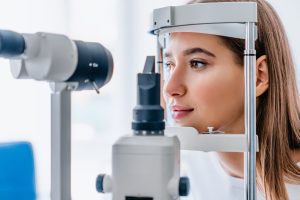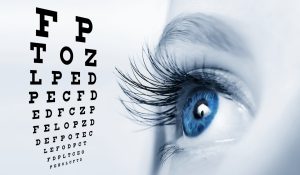Can a colour blind person see any colours?
Yes, many people experiencing colour blindness can see some colours, but not all. This is because there are different types of colour blindness, and each type affects a person’s ability to see different colours. For example, red-green colour blindness affects the ability to see red and green colours, while blue-yellow colour blindness affects the ability to see blue and yellow colours. Some people with complete colour blindness, however, cannot see any colours at all.
Symptoms of colour blindness
Colour blindness, also known as colour vision deficiency, is a condition in which a person has difficulty distinguishing between certain colours. It’s usually a genetic condition caused by abnormalities in the colour-detecting cells (cones) of the retina. The most common form of colour blindness is red-green colour blindness. Here are the typical symptoms of colour blindness:
- Difficulty distinguishing between red and green: People with red-green colour blindness have trouble telling the difference between shades of red and green. This can include confusing red and green traffic lights or difficulty identifying ripe fruits.
- Seeing colours as dull or faded: Some individuals with colour blindness might perceive certain colours as less vibrant or appear washed out.
- Confusing certain colour pairs: Apart from red and green, people with colour blindness may have trouble differentiating between other colour pairs, such as blue and purple, or pink and gray.
- Inability to identify specific colours: In severe cases of colour blindness, individuals may not be able to identify specific colours at all.
- Difficulty with colour-coded information: Color-blind individuals may struggle to interpret color-coded information, such as maps, charts, or graphs that rely heavily on color differentiation.
- Challenges in low-light conditions: Color vision deficiency can be more pronounced in dimly lit environments or under certain types of lighting.
It’s important to note that color blindness is a spectrum, and its severity can vary from mild to severe. Additionally, there are different types of color blindness, each affecting the perception of colors in a specific way.

Related FAQs
Wearing glasses or contacts can indeed affect dry eye symptoms, but the impact varies. Glasses can help shield the eyes from environmental factors that exacerbate dry eye, such as wind or air conditioning. On the other hand, contact lenses can sometimes worsen dry eye symptoms by absorbing tear moisture or by causing irritation. Certain types of contact lenses are designed to be more breathable and retain moisture better, which may be suitable for people with dry eyes. It’s crucial to discuss with an eye care professional to find the most appropriate type of contact lens or glasses. Proper care and hygiene when using contacts, along with regular breaks from screen use, can help minimize dry eye symptoms.
Dry eye syndrome can be both a temporary condition and a chronic disease, depending on its cause and severity. Environmental factors or certain life situations, such as screen use or air travel can cause temporary dry eye. Chronic dry eye, on the other hand, may result from systemic diseases, medication side effects, or age-related changes in tear production. Management and treatment can alleviate symptoms, but chronic dry eye often requires ongoing therapy. It’s important to consult with an eye care professional for an accurate diagnosis and treatment plan. Understanding the underlying cause is key to determining whether dry eye syndrome will be a temporary issue or a chronic condition.
Yes, some specific exercises and therapies can help relieve dry eye symptoms. Blinking exercises, for example, can help improve meibomian gland function and tear film stability. Warm compresses applied to the eyes can also stimulate tear production and release oils from the glands in the eyelids. Gentle eyelid massages can help spread the oils evenly across the eye surface, reducing dryness. Using a humidifier to add moisture to the air and taking regular breaks to rest the eyes during screen time can also be beneficial. Newer technologies such as IPL (Intense Pulsed Light) and RF (Radio Frequency) are also becoming available. Consulting with an eye care professional for personalized advice on exercises and therapies is recommended.
Sleep plays a crucial role in managing dry eye syndrome. Poor sleep can lead to insufficient eye lubrication and worsening dry eye symptoms. During sleep, the eyes rejuvenate and produce the moisture needed for the next day. Good sleep hygiene practices can help ensure the eyes are well-rested and hydrated. It’s also important to avoid sleeping with any airflow directly hitting the face, as this can dry out the eyes. Establishing a regular, restful sleep schedule can significantly improve dry eye symptoms.
Indeed, some medications can exacerbate dry eye symptoms. Diuretics, antihistamines, antidepressants, and some blood pressure medications are known to reduce tear production or alter tear composition. It’s important to review any current medications with a healthcare provider to determine if they could be contributing to dry eye symptoms. Sometimes, alternative medications with fewer dry eye side effects can be prescribed. Always consult with a healthcare professional before making changes to medication regimens. Patients should also stay hydrated and consider using artificial tears if taking medications known to cause dryness.
Yes, it is quite common for dry eye symptoms to worsen in certain weather conditions. Dry, windy, or smoky environments can lead to increased tear evaporation, exacerbating symptoms. Conversely, high humidity can sometimes alleviate dry eye symptoms because the air is more saturated with moisture. Cold weather, especially during winter when indoor heaters are used, can also dry out the eyes. It’s advisable to use humidifiers in such conditions to maintain indoor humidity levels. Wearing wraparound glasses or protective eyewear outdoors can help shield eyes from harsh conditions.
West Edmonton Vision Clinic
Visit our vision clinic in central West Edmonton for comprehensive eye exams, contact lens fittings, glasses, and more. LL Eyecare Centre is dedicated to providing the highest quality optometric services and products to our patients. Our team of experienced optometrists is here to help you with all of your eye care needs. Schedule an appointment today!
Clinic Hours
Monday Closed
Tuesday 9:00-5:00
Wednesday 9:00-5:00
Thursday 9:00-5:00
Friday 9:00-5:00
Saturday 9:00-2:00
Closed Sunday / Holidays




